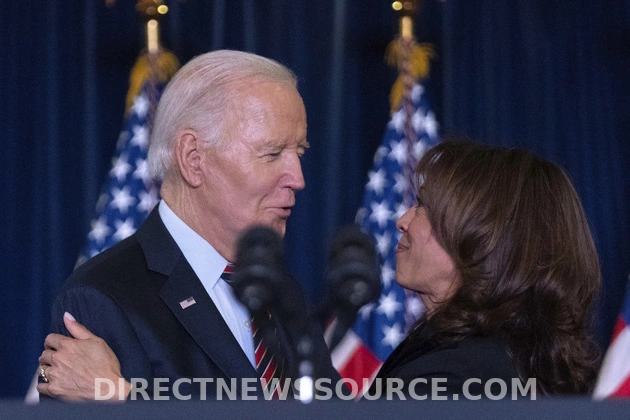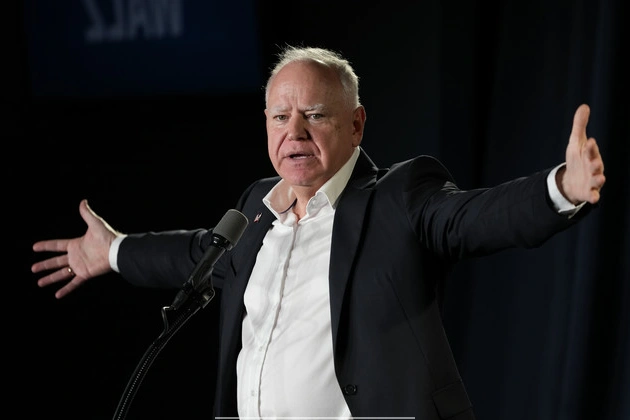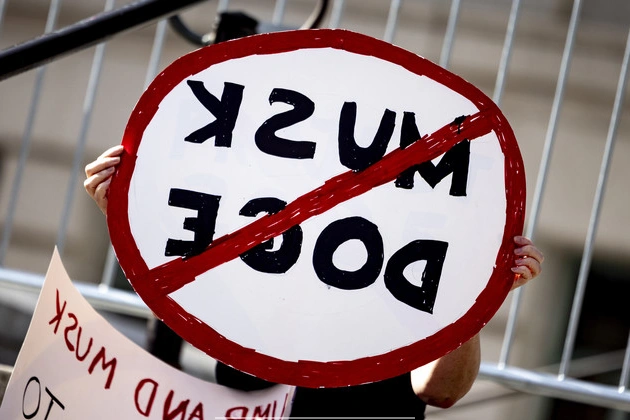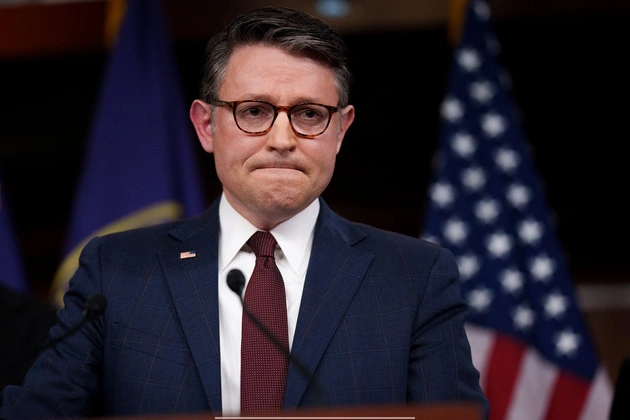
After analyzing their significant losses in 2024, Democrats are facing sobering revelations beyond the shortcomings of Kamala Harris and Joe Biden.
Recent research conducted by the progressive group Navigator Research through a series of focus groups uncovered a prevailing sentiment among voters who formerly supported Democrats. They perceive the party as feeble, excessively fixated on diversity and elites.
During the focus groups, participants drew vivid comparisons to illustrate their views on the Democratic Party. One likened it to an ostrich, attributing the party’s refusal to acknowledge failures to the bird’s behavior of burying its head in the sand. Another compared Democrats to koalas, criticizing their lethargy in achieving essential policy victories. A prevailing opinion emerged that Democrats have drifted away from advocating for the working class.
This research, initially disclosed to POLITICO, serves as a stark assessment for a party grappling with the aftermath of the November losses and seeking a viable path to recovery. With no clear leadership and losses across various demographics, Democrats confront the upcoming term under Trump without a cohesive strategy to bolster their electoral standing. While some fault Biden for the setbacks, others point to inflation or cultural disconnect. However, insights from the focus groups indicate that the challenges facing Democrats run deeper and extend beyond a single election cycle.
The feedback from the focus groups delivers a sharp critique of the Democratic Party’s image, as articulated by Rachael Russell, the director of polling and analytics at Navigator Research. She emphasized the imperative for the party to address its perceived inefficacy in championing policies and advocating for the populace.
The focus groups, conducted by GBAO, a Democratic polling firm, comprised different voter segments: Biden supporters in 2020 who transitioned to Trump in 2024, Biden supporters who abstained from voting in 2024, and voters from blue states who altered their voting patterns. These discussions unveiled a disconnect between the party’s leadership and its base, as highlighted by a Georgia voter who shifted allegiance from Biden to Trump.
Despite reservations about Harris, the focus group participants expressed cautious optimism about Trump’s second term. A post-election poll by GBAO indicated a surge in Trump’s approval ratings since 2020, hinting at a positive outlook among certain segments of the electorate.
Russell cautioned that Trump’s popularity surge might be transient and contingent on his initial actions in office. The polling data suggested potential openings for Democrats on crucial issues such as abortion, healthcare, and wealth taxation. Concerns revolved around Trump’s stance on tariffs, with a significant portion of voters prioritizing inflation as a key issue for the incoming administration.
Amid discussions on inflation and tariffs, participants admitted to a lack of comprehension regarding these policies, although some acknowledged expectations of price hikes. One voter from Wisconsin contemplated the long-term benefits of domestic production despite short-term price escalations.
While disapproval of the Democratic Party was not solely attributed to Harris, criticisms of her candidacy were prevalent. Participants characterized her as insincere, dishonest, and lacking competence. The sentiment was echoed by an Arizona voter who perceived Harris’s remarks as disingenuous.
The scrutiny on Harris coincides with her deliberations on future political endeavors, contemplating a third presidential bid or a gubernatorial run in California. Opinions within the party regarding her prospects remain divided.
Participants also recalled the transgender attack ad employed by the Trump campaign against Harris, underscoring varying interpretations of its impact. Low voter turnout emerged as a significant issue for Democrats, with concerns raised over societal norms and the party’s stance on certain issues.
The revelations from the focus groups shed light on the intricate challenges facing Democrats as they navigate a tumultuous political landscape and strive to realign with voter sentiments.















